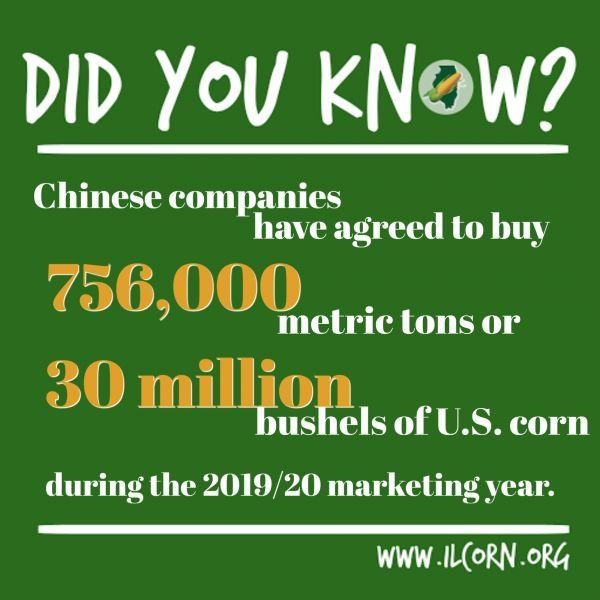International Purchases Are Not Cancelled Amid U.S. COVID-19 Scare
March 23, 2020

The economy might be stalled here in the U.S. while many states are on full shut-down to prevent the spread of COVID-19, but international purchases continue. This is good news for Illinois farmers who sell well over half of their corn and corn co-products like ethanol and DDGS to overseas markets.
Notably:
- Port workers were designated essential workforce under Louisiana’s “stay at home” declaration. This applies to port workers in the pacific northwest as well.
- The Federal Grain Inspection Service will “take all steps necessary” to ensure continuation of inspections for grain exports.
- Chinese firms have purchased another 250,000 tonnes of US corn, bringing recent purchases to roughly 1 MMT. There are rumors of new Chinese purchases of up to 2.5 MMT of US corn.
In terms of global supply and demand of corn, a newly published USDA report shares that although Brazilian corn has dominated Japanese corn purchases over the past few months, experts expect Japan to buy U.S. corn soon. Brazilian stocks are low and U.S. corn is priced competitively for the global marketplace.







